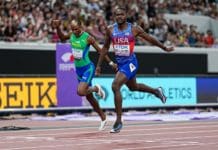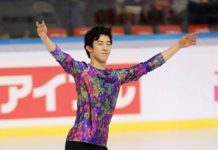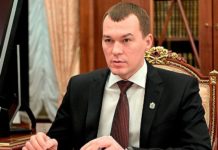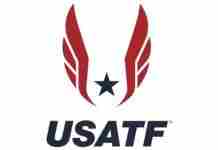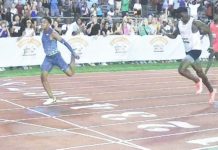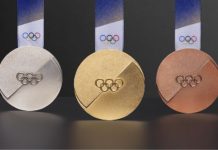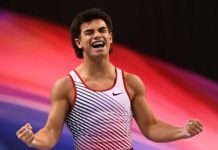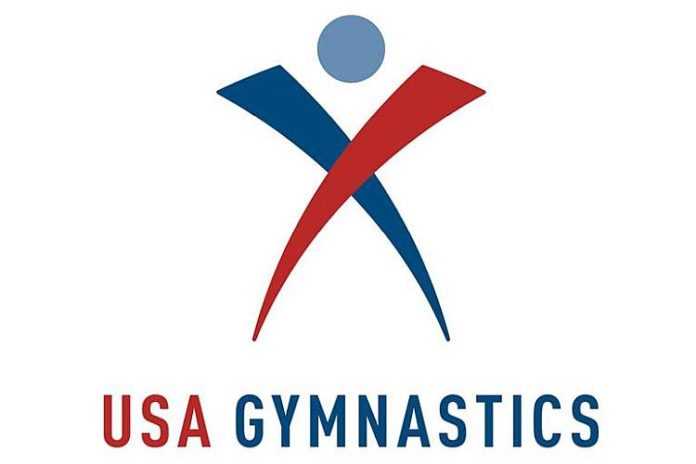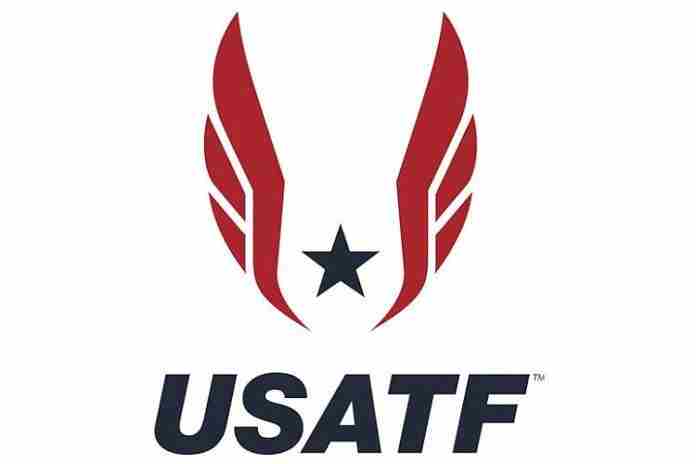News, views and noise from the non-stop, worldwide circus of Olympic sport:
● Games of the XXXII Olympiad: Tokyo 2020 ● “The International Olympic Committee said Monday that Prime Minister Shinzo Abe committed Japan to absorb its share of the additional costs for the postponed Tokyo Olympics but later retracted the remark at the request of the local organizing committee.”
That was the lead from a Kyodo News report from Tokyo on Tuesday, reporting the latest tizzy from the postponement of the Tokyo 2020 Olympic Games into 2021. The IOC posted a statement as part of its questions-and-answers page about the postponement noting:
“Japanese Prime Minister Abe Shinzo agreed that Japan will continue to cover the costs it would have done under the terms of the existing agreement for 2020, and the IOC will continue to be responsible for its share of the costs.
“For the IOC, it is already clear that this amounts to several hundred millions of dollars of additional costs.”
This drew a request from the Tokyo organizers to re-word the comment. Spokesman Masa Takaya said “What we are requesting to the IOC team is that the name of the Japanese Prime Minister should not be quoted, plus the IOC’s website should not express beyond what was agreed between the IOC and Tokyo 2020.” In fact, no specific discussions on costs have been held and the only decision was to hold the Games in 2021.
The new text on the IOC’s site now reads:
“The Japanese government has reiterated that it stands ready to fulfil its responsibility for hosting successful Games. At the same time, the IOC has stressed its full commitment to successful Olympic Games Tokyo 2020. The IOC and the Japanese side, including the Tokyo 2020 Organising Committee, will continue to assess and discuss jointly about the respective impacts caused by the postponement.”
Comment: Yawn.
¶
Another breathless report from Kyodo featured comments by Kentaro Iwata, a professor of infectious diseases at Kobe University, who told an online news conference:
“Japan might be able to control this disease by next summer…but I don’t think that would happen everywhere on earth. I’m very pessimistic…unless you hold the Olympic Games in total different structures, such as no audience or a very limited participation.”
Comment: As is the usual scenario in times of crisis and uncertainty, no one really knows anything. The coronavirus is a new strain, but reports indicate much wider testing and development work on possible vaccines is moving along. Governments worldwide are now heavily involved. References to standard development and testing procedures for new drugs are obsolete.
What is true is that the real answer of whether the Tokyo Games can be held in 2021 won’t be even approached until the end of this year. If athletes can train effectively throughout 2021, and the situation in Japan itself is under control, the opportunity to hold the Games is good. If not, the Games could be in jeopardy. Right now, anyone who claims to know more … probably should take a remotely-administered test for doping.
¶
The United States Olympic & Paralympic Committee has its own headaches, worried both for its own future and for those of the National Governing Bodies which operate the sports on the Olympic, Pan American and Paralympic Games program in the U.S.
USOPC chief executive Sarah Hirshland sent a letter, seen by The Associated Press, to the NGBs on Tuesday, indicating that the USOPC is looking at cuts of 10-20% in its own operations, which will then impact the NGBs in terms of grants and other support usually provided. Wrote Hirshland:
“We have to fully understand what that possibility would mean for our organization, so we certainly have considered it and evaluated it. The impact of cancellation would be devastating to our athletes, first and foremost, but also to our financial health and stability. We would survive such a scenario, but the impact would be severe.”
Many of the U.S. National Governing Bodies are small operations to begin with and U.S. Rugby filed for Chapter 11 Bankruptcy on 30 March. The USOPC asked for $200 million in relief funds from the U.S. government for the NGBs and for direct athletes to athletes, but no allocation was made in the final bill.
The USOPC does have a significant reserve of $270 million in its U.S. Olympic Endowment, as shown in its 31 December 2018 financial statements. Of this, $60 million belongs to those National Governing Bodies who have made investments which are managed by the USOPC. The genesis of almost all of this money was the $139 million received from the Los Angeles Olympic Organizing Committee following the success of the 1984 Olympic Games.
Hirshland noted that if the 2020 Games are in fact held in 2021, the massive payments due to the USOPC from its share of U.S. television rights fees from NBC will come in, but a year late. Wrote Hirshland, “We need to retain the ability to deal with things getting significantly more difficult, for example if there were a cancellation of the Tokyo Games.”
A truly catastrophic scenario would be cancellations of the 2020 Tokyo Games and then a follow-on cancellation of the 2022 Olympic Winter Games in Beijing (CHN). But, for now, belts will be tightened and the pants do not have to be sold … yet.
● Athletics ● The U.S. Olympic Trials in track & field have been confirmed for 18-27 June, essentially the same time frame as scheduled for 2020.
USATF confirmed the dates for the event, to be held at the new Hayward Field in Eugene, Oregon. The Trials will start just six days after the finish of the 2021 NCAA Division I Championships, also scheduled for Hayward Field.
The annual Prefontaine Classic meet, part of the Wanda Diamond League circuit, will be held prior to the NCAA meet. It’s not clear whether the Pacific-12 Championships – the meet that was supposed to open the new facility in 2020 – will be held in Eugene for 2021, or moved on to the next scheduled venue.
The new dates for the track trials partially coincide – as previously planned – with the swimming trials, now set for 13-20 June in Omaha, Nebraska. No word yet on new dates for the U.S. trials in Artistic Gymnastics, originally scheduled for 25-28 June 2020 in St. Louis, or for diving, slated for Indianapolis.
¶
Said U.S. hurdler Devon Allen, now training with his former collegiate coach Jamie Cook in Annapolis, Maryland:
“I’m just excited for the time to come, with the Olympics coming up in 2021. This gives everybody a chance to restart and be reenergized. This Olympics, I think, will be one of the biggest and most anticipated ever.”
Allen told Track & Field News that constant injury issues make the move of the Games from 2020 to 2021 a positive for him. “I have more time to be healthy and train. It is probably the best case for me. If the Olympics were this year anyways, I think I would have been ready. But it doesn’t hurt me to have another 18 months.”
● Cycling ● “Cycling is a poor sport because it’s only supported by business, if the Tour is not held it would be a catastrophe.”
That’s Colombian road racing star Rigoberto Uran, from an interview with the Colombian Cycling Federation, and referring to the postponement of the 2020 Tour de France to 29 August-20 September. Uran’s predicted total chaos in the sport if this year’s Tour had to be canceled.
“For example, of the 18 [WorldTour] teams, only three could survive, and the others face a very complicated future. Right now, there are only three teams that are economically strong. There are only a few businesses in the world doing well at the moment. If this keeps going, there’s going to be a crisis, and when a company needs to make cuts, they begin with their marketing plans and that will impact cycling. …
“It will be difficult to return to normal life, I think it will be difficult for us all but we have to continue. I hope that everything is eventually resolved, that a vaccine is found, that people get jobs, that the world economy is good again. We’ve perhaps learnt that everything must be valued: being able to go out into the street, to a bar to have a beer, to travel. They are normal things but we’ll value them very much in the future.”
The Union Cycliste Internationale (UCI) announced on 15 April that the World Road Race Championships are still hoped to be held in Switzerland from 20-27 September – a week after Le Tour – with the Giro d’Italia taking place soon after (possibly 4-25 October) followed by the Vuelta a Espana, possibly on 1-22 November.
Said Uran, “If they tell us we have to race in the cold, we’ll race in the cold. We’ll also have to see how all this works out, if they let us travel, if they let us enter Europe, or if they let us leave Colombia.”
● Football ● The federation with the most money, FIFA, is using it to support its member federations and reiterating its commitment to women’s football development.
FIFA President Gianni Infantino (SUI) previously confirmed that its financial allocations to national federations be paid in full for 2020. “Thanks to the work that we have been doing together in FIFA during the past four years, we are today in a very strong financial situation.
“FIFA enjoys a good reputation on the financial markets… This has helped us consolidate a solid foundation with large reserves. But our reserves are not FIFA’s money. It is football’s money. So when football is in need, we must think what we can do to help… It is our responsibility and our duty.”
On Tuesday, FIFA issued a statement to The Associated Press on women’s football funding, which included:
“In line with the FIFA Women’s Football Strategy and FIFA’s long-term vision for the development of women’s football, this funding will be invested into a range of areas in the women’s game including competitions, capacity building, development programmes, governance and leadership, professionalisation and technical programmes.
“We can confirm that this funding has already been committed by FIFA and will not be impacted by the current COVID-19 crisis.”
These commitments are in line with Infantino’s pledge during his first campaign to be FIFA President to use the federation’s enormous financial assets for development and support, and not to gather more interest and value. Good for him.







